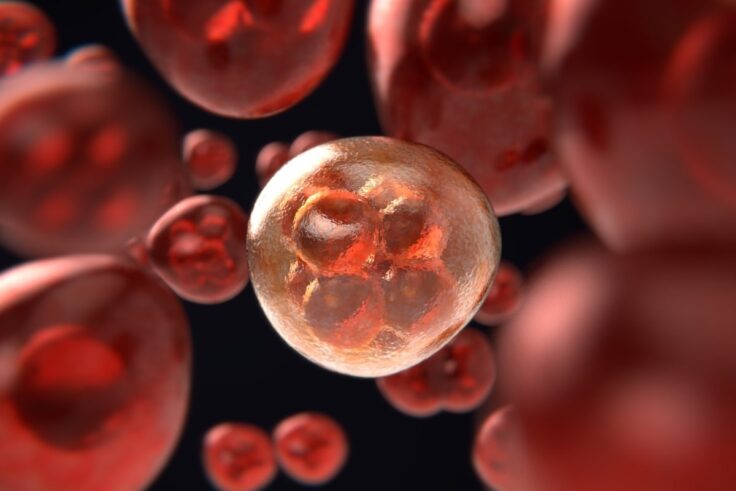Cancer – Causes, Symptoms, Diagnosis, And Treatment

Cancer is one of the deadliest diseases mankind ever faced. But thanks to modern discoveries, it can be controlled and even cured. So let’s take a closer look over how is this possible.
Cancer is a group of diseases that can develop in any of the organs in the human body as a result of mutations in healthy cells. Over time, tumor cells can also spread to neighboring organs, forming the so-called metastases.
According to the WHO, in 2018, 9.6 million people died of this pathology all over the globe.
Thanks to the development of medicine, the number of cancer control methods is increasing, which reduces the mortality rate.
The sooner the disease is revealed, the better the effect of treatment we can receive.
What Is The Cause Of Cancer?
Cancer is a pathological process that develops as a result of the conversion of healthy body cells into the malignant ones due to a failure in the synthesis of DNA.
These changes can occur as a result of the negative impact of external and internal factors, such as:
- Physical factors: ultraviolet and ionizing radiation.
- Chemical factors: heavy metal impurities in tobacco products, asbestos, and arsenic.
- Biological factors: infections caused by certain viruses or bacteria.
- Age: decrease of the protective functions of the body and decreasing of renewal rate of cells in our body with aging.
In addition to the negative effects of external factors, there are also risk factors that increase the chances of healthy cells becoming cancerous. These include:
- Smoking;
- Alcohol consumption;
- Unbalanced diet;
- Obesity;
- Drugs;
- Lack of physical activity;
- Pathologies of the immune system.
Main Symptoms Of Cancer
Symptoms of cancer can be various, depending on the location of the tumor. Some types of tumors do not have symptoms, while in others they appear only at the last stages.
However, scientists identify common symptoms that appear in almost every person with cancer:
- Fever or chills;
- Weight gain or weight loss;
- Pain syndrome;
- Loss of appetite;
- Muscle or joint pain;
- Constant feeling of tiredness or fatigue.
Diagnostic Methods
At the moment, in modern medicine, there are many tools for diagnosing various diseases. There are special diagnostic methods for each organ or area of the human body, but even they cannot guarantee that cancer can be detected.
For the diagnostics of oncology, a doctor can use the following instrumental methods:
- Screening for cancer markers;
- Mammography, if a breast tumor is suspected;
- Endoscopy;
- MRI;
- Ultrasound scan;
- X-ray examination;
- Histological examination.
In addition to instrumental methods, there are also laboratory ones, including:
- Complete blood count;
- Urine analysis;
- Blood biochemistry;
- Coagulogram;
- Blood test for tumor markers.
Cancer Treatments Methods
Here are the main methods of cancer treatment known to this day:
1. Surgical Treatment
Surgical treatment of oncology can be of several types, the use of which depends on the size of the tumor and the degree of organ damage:
- Photodynamic therapy, where a special photosensitive substance is introduced into the affected tissue. The subsequent exposure to the light damages cancer cells.
- Laser therapy includes removing neoplasms with the high-intensity light.
- Cryosurgery is the destruction of malignant cells by low temperatures.
- Surgical removal of the tumor.
2. Chemotherapy
This is a comprehensive method of fighting malignant tumors. The patient receives a course of drugs that destroy diseased cells.
Unfortunately, chemotherapy affects not only the disease but also healthy cells: hair follicles, bone marrow, cells of the gastrointestinal tract, and others, which causes negative side effects.
3. Radiation Therapy
The method uses the energy of electromagnetic radiation or beams of elementary nuclear particles for killing tumor cells or slowing down their growth.
Unfortunately, some healthy cells that fall into the irradiation zone are also damaged, but most of them are able to recover.
Tumor cells divide faster than healthy cells, so this procedure damages them more.
4. Hormone Therapy
Usually, this method is used if the disease affects hormone-dependent organs such as the mammary gland in women or the prostate gland in men.
This type of treatment is used in combination with other methods and serves for suppression and normalization of hormones synthesis that inhibits the growth of tumor cells.
The hormone therapy is one of the non-surgical ways of fighting cancer.
Now, it is important to always listen to your doctor’s advice. Only you and your family doctor know what’s best for your health.